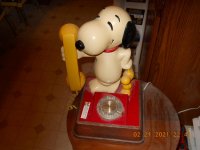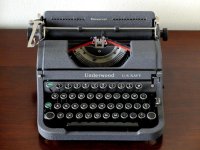old tanker
Well-known member
So much for the old army saying, "Never volunteer."
Sometime along in the Eighties company clerks disappeared as a authorized slot in the TO&E, those tasks now theoretically consolidated at higher HQ. For certain, there was a desk in the Orderly Room and a clerk behind it. That be somebody grabbed out of a line platoon simply by the First Sergeant asking, "Anyone here, know how to type?"
That the clerk was marked ED on the DA Form 6, aka "duty roster" and did not stand guard duty, KP or CQ was a nice perk to the job.


